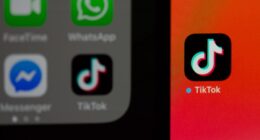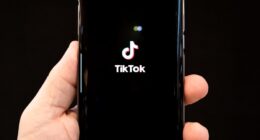Music influencers have emerged as significant players in the music industry, wielding considerable influence over trends, artist promotion, and music consumption patterns. These individuals or groups have amassed substantial followings on social media platforms like YouTube, Instagram, TikTok, and Twitter by producing and sharing music-related content. Their passion for music and ability to identify emerging talent make them valuable trendsetters within the industry.
The category of music influencers encompasses a diverse range of personalities, including musicians, DJs, music critics, bloggers, and vloggers. They utilize their platforms to showcase favorite songs, albums, and artists, while also providing reviews, interviews, and exclusive content. Their impact extends beyond music promotion, as they significantly influence how people discover, consume, and interact with music.
Consequently, they have become attractive partners for record labels, brands, and artists seeking to expand their reach and maintain relevance in a dynamic industry. The ability of music influencers to introduce new music to vast audiences has made them integral to the contemporary music landscape. Their capacity to forge personal connections with fans and curate engaging content has rendered them indispensable in music promotion and marketing strategies.
As the music industry continues to evolve, the role of music influencers is expected to grow in importance, shaping future musical trends and influencing marketing approaches adopted by artists and labels.
Key Takeaways
- Music influencers play a significant role in shaping trends and influencing the industry.
- Collaborations and partnerships with music influencers are crucial for effective music marketing.
- Social media platforms have become a powerful tool for music promotion through influencers.
- The future of music influencers will continue to impact the sound of tomorrow.
- Artists can benefit from utilizing music influencers in their marketing strategy by building authentic relationships and engaging with their audience.
The Impact of Music Influencers on the Industry
Breaking New Artists and Songs
One of the most significant impacts of music influencers is their ability to break new artists and songs. By sharing their favorite music with their followers, they can introduce emerging talent to a massive audience, giving them the exposure they need to build a fan base and grow their career. This has led to a democratization of the music industry, allowing independent artists to compete with major labels and reach success on their own terms.
Shaping the Way Music is Consumed and Shared
Furthermore, music influencers have also played a crucial role in shaping the way music is consumed and shared. With the rise of streaming platforms and social media, music has become more accessible than ever before, and influencers have been at the forefront of this shift. They have helped popularize new ways of discovering and consuming music, such as curated playlists, live streaming events, and interactive fan engagement.
Essential Partners in a Changing Landscape
As a result, they have become essential partners for artists and labels looking to stay relevant in a rapidly changing landscape.
The Role of Music Influencers in Shaping Trends

Music influencers play a pivotal role in shaping trends within the industry. Their ability to connect with fans on a personal level and their keen understanding of what resonates with their audience gives them the power to influence the way people discover, consume, and engage with music. From promoting new genres and subcultures to popularizing specific sounds and styles, music influencers have the ability to shape the direction of the industry.
One way in which music influencers shape trends is through their curation of content. By sharing their favorite songs, albums, and artists with their followers, they can introduce new sounds and styles to a wide audience, helping to popularize emerging genres and subcultures. This has led to a more diverse and inclusive music landscape, allowing for greater representation and visibility for artists from all backgrounds.
Additionally, music influencers also play a crucial role in setting fashion and lifestyle trends within the industry. Their personal style and aesthetic choices often influence their followers, leading to the popularization of specific fashion trends, beauty standards, and lifestyle choices. This has made them valuable partners for brands looking to connect with a younger demographic and stay ahead of the curve in terms of cultural relevance.
Overall, music influencers have become tastemakers within the industry, shaping trends and influencing the way people engage with music and culture. Their ability to connect with fans on a personal level and their knack for curating content that resonates with their audience has made them indispensable in shaping the direction of the industry.
Collaborations and Partnerships in Music Marketing
| Metrics | Description |
|---|---|
| Number of Collaborations | The total number of partnerships formed with other artists or brands. |
| Engagement Rate | The percentage of audience interaction with collaborative content. |
| Reach | The total number of unique users who have been exposed to collaborative content. |
| Conversion Rate | The percentage of users who took a desired action after engaging with collaborative content. |
Collaborations and partnerships between music influencers, artists, labels, and brands have become increasingly common in music marketing. These partnerships allow for cross-promotion, co-creation of content, and access to new audiences, making them valuable opportunities for all parties involved. Music influencers often bring a fresh perspective and a direct line to engaged fans, while artists and labels can provide exclusive content and access to behind-the-scenes experiences.
One common form of collaboration is through sponsored content or brand partnerships. Music influencers often work with brands to promote products or services that align with their personal brand and aesthetic. This can include sponsored posts on social media, product placements in music videos or live streams, or branded content creation.
These partnerships allow brands to reach a targeted audience through authentic endorsements from trusted voices within the industry. Another form of collaboration is through co-creation of content with artists and labels. Music influencers often work closely with artists to create behind-the-scenes content, exclusive interviews, or collaborative projects such as music videos or live performances.
These collaborations provide fans with unique access to their favorite artists while also giving artists an opportunity to reach new audiences through the influencer’s platform. Overall, collaborations and partnerships in music marketing have become essential for reaching new audiences and staying relevant in a crowded landscape. By leveraging the reach and influence of music influencers, artists, labels, and brands can create engaging content that resonates with fans while also driving business objectives.
The Rise of Social Media Platforms in Music Promotion
The rise of social media platforms has had a profound impact on the way music is promoted and consumed. Platforms such as Instagram, TikTok, YouTube, Twitter, and Facebook have become essential tools for reaching new audiences, engaging with fans, and promoting new music. Music influencers have been at the forefront of this shift, using these platforms to connect with fans on a personal level and share their favorite songs, albums, and artists.
One of the most significant impacts of social media platforms on music promotion is their ability to democratize the industry. Artists no longer need major label backing to reach a wide audience; they can use social media to connect directly with fans and build a loyal following. This has led to a more diverse and inclusive music landscape, allowing for greater representation and visibility for artists from all backgrounds.
Furthermore, social media platforms have also changed the way music is discovered and consumed. With the rise of streaming services such as Spotify and Apple Music, as well as user-generated content platforms like TikTok and YouTube, fans have more ways than ever before to discover new music. Music influencers play a crucial role in this process by curating content that resonates with their audience and introducing new artists to a wide audience.
Overall, social media platforms have become essential for music promotion, allowing artists, labels, and influencers to reach new audiences and engage with fans in innovative ways. As these platforms continue to evolve, they will play an increasingly important role in shaping the future of the industry.
The Future of Music Influencers and Their Influence on the Sound of Tomorrow

Breaking New Artists and Genres
One area where music influencers will continue to have an impact is in breaking new artists and genres. With their ability to reach a wide audience and their passion for discovering new talent, they will play a crucial role in introducing emerging artists to the mainstream. This will lead to a more diverse and inclusive music landscape, allowing for greater representation and visibility for artists from all backgrounds.
Shaping Trends and Industry Direction
Furthermore, music influencers will also continue to shape trends within the industry by curating content that resonates with their audience. From promoting new genres and subcultures to popularizing specific sounds and styles, they will influence the direction of the industry by introducing new sounds and styles to a wide audience.
A Bright Future Ahead
Overall, the future of music influencers looks promising as they continue to shape the sound of tomorrow through their ability to connect with fans on a personal level and their knack for curating content that resonates with their audience.
Tips for Artists to Utilize Music Influencers in Their Marketing Strategy
For artists looking to utilize music influencers in their marketing strategy, there are several tips to keep in mind: 1. Identify the right influencers: It’s essential to research and identify influencers whose audience aligns with your target demographic. Look for influencers who are passionate about your genre or style of music and have an engaged following.
2. Build authentic relationships: Instead of approaching influencers with a transactional mindset, focus on building authentic relationships based on mutual respect and shared values. This will lead to more genuine endorsements from influencers who truly believe in your music.
3. Provide exclusive content: Offer influencers exclusive access to behind-the-scenes content, unreleased tracks, or live performances to create engaging content that resonates with their audience. 4.
Leverage multiple platforms: Consider working with influencers across multiple social media platforms to reach a diverse audience and maximize your exposure. 5. Measure success: Track key performance indicators such as engagement rates, follower growth, and streaming numbers to measure the success of your influencer partnerships.
By following these tips, artists can effectively utilize music influencers in their marketing strategy to reach new audiences and stay relevant in an ever-changing industry.
If you’re interested in learning more about the impact of music influencers, check out this article on musicmarketing.digital. It delves into the world of music influencers and how they can help artists gain exposure and connect with new fans. This article provides valuable insights into the power of influencer marketing in the music industry and how it can be leveraged to boost a musician’s career.
FAQs
What is a music influencer?
A music influencer is an individual or group with a significant following on social media platforms who has the ability to impact the opinions and behaviors of their audience in relation to music.
How do music influencers impact the music industry?
Music influencers can impact the music industry by promoting and endorsing new music releases, artists, and events to their followers. They have the ability to create trends and influence the listening habits of their audience.
What platforms do music influencers typically use?
Music influencers typically use social media platforms such as Instagram, YouTube, TikTok, and Twitter to share and promote music content to their followers.
What are the benefits of working with music influencers?
Working with music influencers can help artists and record labels reach a wider audience, increase their visibility, and create buzz around new releases. It can also help build credibility and trust with potential fans.
How do music influencers choose the music they promote?
Music influencers often choose the music they promote based on their personal preferences, the interests of their audience, and the potential for the music to resonate with their followers. They may also consider partnerships and collaborations with artists and record labels.









